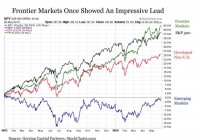The oil price carnage, which started to unsettle the investing world in the second half of 2014, is showing no sign of a retreat. Even this year, the crude issues are blazing. As a result, investors are fervently looking out for the earnings performance of oil service companies to weigh their options for an investment in energy stocks. Presently, the Zacks Industry Rank for oil service companies is in the bottom 27%. Thanks to this outright bearish backdrop, the sector is grabbing investors’ focus this earnings season, as everyone is keen on finding out the direction of oil flow. Let’s delve a little deeper into the earnings picture and see how things are shaping up for the space. In this piece, we have discussed two stocks – namely, Schlumberger Ltd. (NYSE: SLB ) and Halliburton Company (NYSE: HAL ). Between the duo, Schlumberger reported earnings on July 16, followed by Halliburton on July 20. The results were broadly mixed, with Halliburton beating on both lines and Schlumberger delivering mixed numbers. Results in Detail Halliburton, the second-largest oil service company, came up with an earnings and revenue beat in Q2. Its earnings of $0.44 per share from continuing operations beat the Zacks Consensus Estimate of $0.29. However, the bottom line deteriorated from the second-quarter 2014 adjusted earnings of $0.91 per share. The company’s revenues of $5.9 billion reflected a year-over-year decline of 26.5%, but a 0.7% beat over the Zacks Consensus Estimate. Higher profitability in Brazil, improved drilling activities in the Middle East/Asia and cost containment efforts led to the beat, despite the energy sector’s weakness. The shares were up over 1.8% in the key trading session following the results, but the slump in crude prices in the wake of a steadier greenback led the stock to shed 1.6% after-hours. Schlumberger, the world’s largest oilfield services provider, came up with a mixed Q2 with adjusted earnings of $0.88 per share (excluding special items), which edged past the Zacks Consensus Estimate of $0.79, but fell from the year-ago number of $1.37. Total revenue of $9.0 billion declined 25% year-over-year and fell shy of the Zacks Consensus Estimate of $9.1 billion. SLB retreated about 0.4% following its results, mainly reflecting the revenue weakness and failing crude prices. Market Impact The space is obviously woebegone. Still, a bottom-line beat in both firms in this downbeat operating environment can be perceived positively. While a single stock pick is always an option to play this earnings season, we could see a deep impact on ETFs that are heavily invested in these popular oil service companies (see all the Energy Equity ETFs here ). Notably, the ETF route will help investors to mitigate one company’s average performance with the other company’s stellar results. Below, we have highlighted three oil-services ETFs with considerable allocation to SLB and HAL that could be in focus following oil-service earnings: iShares U.S. Oil Equipment & Services ETF (NYSEARCA: IEZ ) This ETF, which tracks the Dow Jones U.S. Select Oil Equipment & Services Index, invests about $313 million of assets in 46 securities, focusing solely on the energy world. In-focus SLB takes the first position here, with 23.83% of holdings. Generally, when one stock accounts for as much as 23% of an ETF’s weight, its individual performance decides much of the fund’s price movement. HAL takes up the second position, with about 10.22% of total assets. The fund is off about 11.5% year-to-date (as of July 20, 2015). However, following the release of earnings by the duo, IEZ has lost about 2.4% (as of July 20, 2015). IEZ is a cheaper fund, charging 0.44% for its expense ratio. The fund has a Zacks ETF Rank #3 (Hold), with a High risk outlook. Market Vectors Oil Services ETF (NYSEARCA: OIH ) OIH tracks the Market Vectors US Listed Oil Services 25 Index. The index invests $986.7 million of assets in 26 holdings. The fund devotes as much as 22.28% of the portfolio weight to SLB, followed by 13.2% in HAL. OIH is cheap in the space, with an expense ratio of 0.35% (read: Oil Services ETFs Head-to-Head: XES vs. OIH ). The fund is down about 11.3% so far this year (as of July 20, 2015), and has lost about 2.4% since July16. OIH has a Zacks ETF Rank #3, with a High risk outlook. PowerShares Dynamic Oil & Gas Services Portfolio ETF (NYSEARCA: PXJ ) This product offers exposure to 30 energy stocks, with SLB and HAL at the second and fourth positions, respectively, allocating more than 5% of total asset to each. PXJ tracks the Dynamic Oil & Gas Services Intellidex Index, and has amassed about $58 million thus far. The ETF charges 61 bps in fees. Thus, it is slightly more expensive than some of its counterparts. The fund has lost about 3.3% following the earnings release of the two companies, and is off over 15% year-to-date. PXJ has a Zacks ETF Rank #4 (Sell), with a High risk outlook. Original Post
